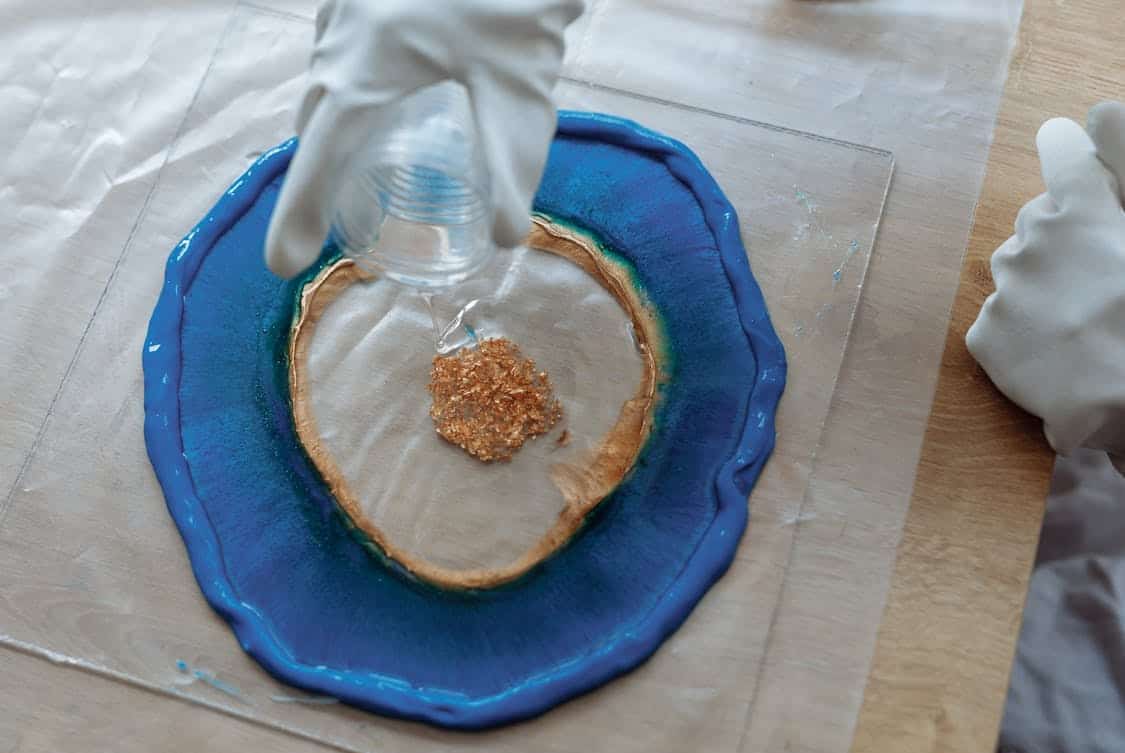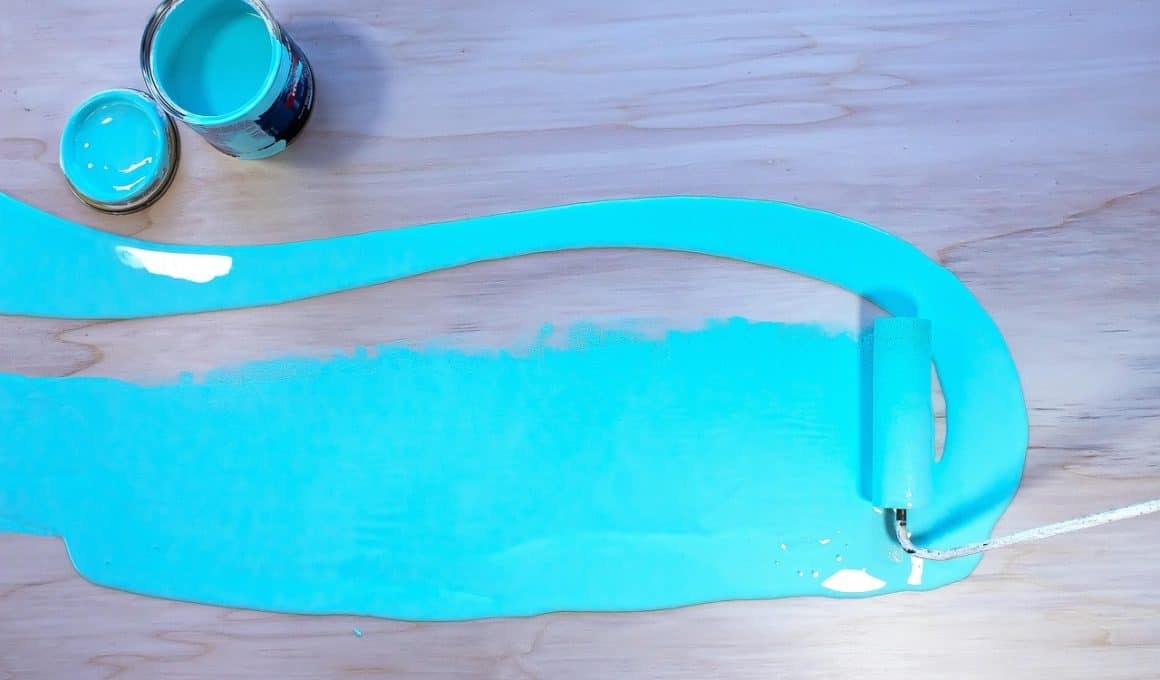Epoxy has become a staple in home improvement and crafting projects. Its versatility makes it a popular choice for various applications, from flooring to countertops to arts and crafts.
Choosing the right type of epoxy can be a challenging task, especially given the wide selection available on the market. Let’s break down the different types of epoxy suitable for home use, focusing on their specific qualities and best applications.
Understanding Epoxy Basics
Epoxy is a type of adhesive or coating formed by mixing two components: resin and hardener. When combined, these elements undergo a chemical reaction that creates a strong, durable bond.
This reaction not only results in a solid finish but also provides the material with excellent resistance to heat, chemicals, and moisture.
There’s a variety of epoxies available, each tailored for specific uses. Understanding these nuances will help you make an informed choice for your home projects.
Types of Epoxy
Epoxy Resin

Epoxy resin is a versatile material that can be used for a range of applications, from crafting to industrial uses. It is often employed in creating art pieces, jewelry, and even furniture. The clear finish makes it particularly appealing for projects where aesthetics matter.
When selecting epoxy resin, look for one that is UV-resistant if your project will be exposed to sunlight. This helps prevent yellowing over time. It’s also essential to choose a resin with a low viscosity for deep pours, as this ensures better flow and reduces air bubbles.
Epoxy Adhesives
If you need strong bonding capabilities, epoxy adhesives are a go-to option. These adhesives are perfect for gluing wood, metal, plastic, and other materials. They typically come in a two-part formula that requires mixing before application.
When using epoxy adhesives, consider the curing time. Some formulations set quickly, which can be a blessing for small repairs. Others take longer but offer a stronger bond. Always follow manufacturer guidelines to achieve the best results.
Epoxy Coating
Epoxy coatings are widely used for flooring solutions, especially in garages and basements. These coatings create a tough, seamless surface that withstands wear and tear. They are also resistant to stains and chemicals, making them ideal for high-traffic areas.
If you’re looking to elevate the look of your space, consider exploring custom decorative quartz and metallic systems that combine durability with striking visual appeal.
When applying an epoxy coating, surface preparation is key. The area must be clean, dry, and free of any debris. Properly mixing the components is essential, as is applying the coating in suitable conditions to ensure proper curing.
Selecting the Right Epoxy for Your Project
Consider the Environment
Different environments demand different types of epoxy. For instance, outdoor projects require UV-resistant formulations to prevent degradation from sun exposure. Conversely, indoor projects can focus more on aesthetic qualities and ease of use.
Always evaluate where your epoxy will be used. If it’s a high-moisture area, like a bathroom, selecting a moisture-resistant epoxy is a wise choice.
Application Method
Another factor to weigh is the application method. Some epoxy products come in pre-mixed syringes or kits that make application straightforward, while others may require more detailed mixing and tools.
If you’re a novice, pre-mixed options can save you time and reduce mess. For more experienced users, traditional mixed epoxies may offer greater flexibility in terms of ratios and customization.
Curing Time
Curing time can vary significantly between products. Some epoxies cure within hours, while others may take days to fully harden.
Depending on your project timeline, pick an epoxy that aligns with your schedule. Quick-curing options can be handy for urgent repairs or projects.
Popular Brands and Products
When it comes to high-quality epoxy products, several brands have built a strong reputation. Here are some favorites among both DIY enthusiasts and professionals:
West System Epoxy
Known for its marine-grade applications, West System offers a range of epoxies that are perfect for various home projects. Their products are incredibly strong and reliable, making them a favorite for both novice and experienced users.
Gorilla Epoxy
Gorilla is synonymous with strong adhesives, and their epoxy is no exception. It features a fast-setting formula that bonds well to multiple surfaces, making it suitable for quick repairs around the home.
Epoxy Resin Art Kits
For those interested in creativity, many companies offer epoxy resin art kits. These often include colored resins, molds, and tools to help you create stunning pieces. They’re ideal for crafting enthusiasts looking to explore this medium.
Safety Considerations
Using epoxy safely is paramount. Always work in a well-ventilated area, as fumes can be harmful. Wearing gloves and safety goggles is also advisable to protect your skin and eyes from the resin and hardener.
Before starting a project, read the safety instructions provided by the manufacturer. Some epoxies may require specific handling techniques, and being informed can prevent accidents.
Cost Factors
The price of epoxy can vary widely based on its type, brand, and intended use. Basic epoxy adhesives can be found for a few dollars, while high-end resins for artistic projects may cost significantly more.
Budgeting for your project is essential, but remember that quality often correlates with price. Investing in a reliable epoxy can save you the headache of repairs down the line.
Maintenance and Longevity
Choosing the right epoxy is just the first step. Maintenance plays a crucial role in longevity. For flooring applications, regular cleaning is key to keeping the surface looking new. Avoid harsh chemicals that can degrade the epoxy over time.
In cases of wear and tear, minor repairs can often be performed with the same epoxy. Just ensure that the area is clean and prepared before applying a new coat.





